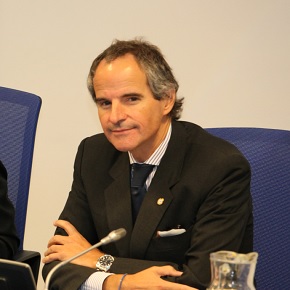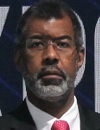 |
||
|
Engineering Division of ROSATOM and JNPC signed the acceptance statement confirming the transfer of the nuclear island of Tianwan-3 Communications Unit of the Engineering Division of ROSATOM, PUBLISHED 20.01.2020 On January 20, Director General of ROSATOM Alexey Likhachev paid a working visit to the operating Tianwan Nuclear Power Plant (Jiangsu Province, China). Tianwan NPP is a result of Russia China joint efforts. Today, all four power units with Russian-designed VVER-1000 operate efficiently at the station. Alexey Likhachev met with the head of the Atomic Energy Agency of China, Zhang Kejian, as part of his visit to the Tianwan NPP. Together they attended the signing ceremony for the final acceptance of the nuclear island at Unit 3, Tianwan NPP. Russia and China signed the final acceptance statement confirming the transfer of the nuclear island to the Chinese customer for operation. Alexey Bannik, Vice President in charge of projects in China, ASE EC JSC (the Engineering Division of ROSATOM), signed the statement for the Russian side, and Zhang Yi, Deputy Director General of Jiangsu Nuclear Power Corporation (JNPC) appended his signature for China. At present, all four units operate at the level of their nominal capacity, steadily demonstrating one of the best results in the Chinese as well as the world nuclear industry. Aleksey Likhachev pointed out that commercial operation of power units 3 and 4 started ahead of the schedule. "Tianwan NPP is a vivid example of the highest skill level of Russian and Chinese nuclear engineers, the best confirmation of the synergy of each and every employee's personal and professional contribution," Aleksey Likhachev noted. Alexey Likhachev and Zhang Kejian also visited the site allocated for the construction of new units 7 and 8 at Tianwan NPP, which are to be equipped with the latest Gen 3+ VVER-1200. At the moment, the site is ready. The parties expressed their hope that the first concrete of power unit 7 will be poured in December 2020, 5 months ahead of the schedule. Tianwan NPP is the largest facility built within the framework of the Russian-Chinese economic cooperation. At present, the station comprises 4 power unites equipped with Russian VVER-1000. Power units 1 and 2 at Tianwan NPP started their guarantee operation in 2007. Units 3 and 4 were put to commercial operation in 2018. The station is equipped with a four-channel security system, active and passive safety systems, and a digital I&C system. The reactor has a double containment which can withstand earthquakes, explosions and other natural disasters. Inside the reactor vessel there is a "core catcher" providing an additional safety barrier. On June 8, 2018, during the state visit of Vladimir Putin to China, Russia and China signed an intergovernmental protocol and a framework contract for the construction of units 7 and 8 with the newest Gen 3+ VVER at TNPP. On March 7, 2019, in Beijing, the two countries signed the general contract for the construction of units 7 and 8 at Tianwan NPP. In accordance with the document, Russia shall design the nuclear island and supply its key equipment to these two units. Other news: 447 nuclear units are operating in the world Another 52 units are under construction. WANO, IAEA, EPRI collaborate to help new nuclear power units to start up safely and on time The white paper is available here (bottom left section to download). The total contract value is 26.3 billion rubles. |
Hero of the day 
IAEA Board Appoints Rafael Grossi as Director General Ambassador Rafael Mariano Grossi is set to take office as Director General of the International Atomic Energy Agency (IAEA) in early December, following his appointment to the post by the Agency's Board of Governors on Wednesday 30 October 2019. INTERVIEW
William D. Magwood, IV OPINION
WANO |

